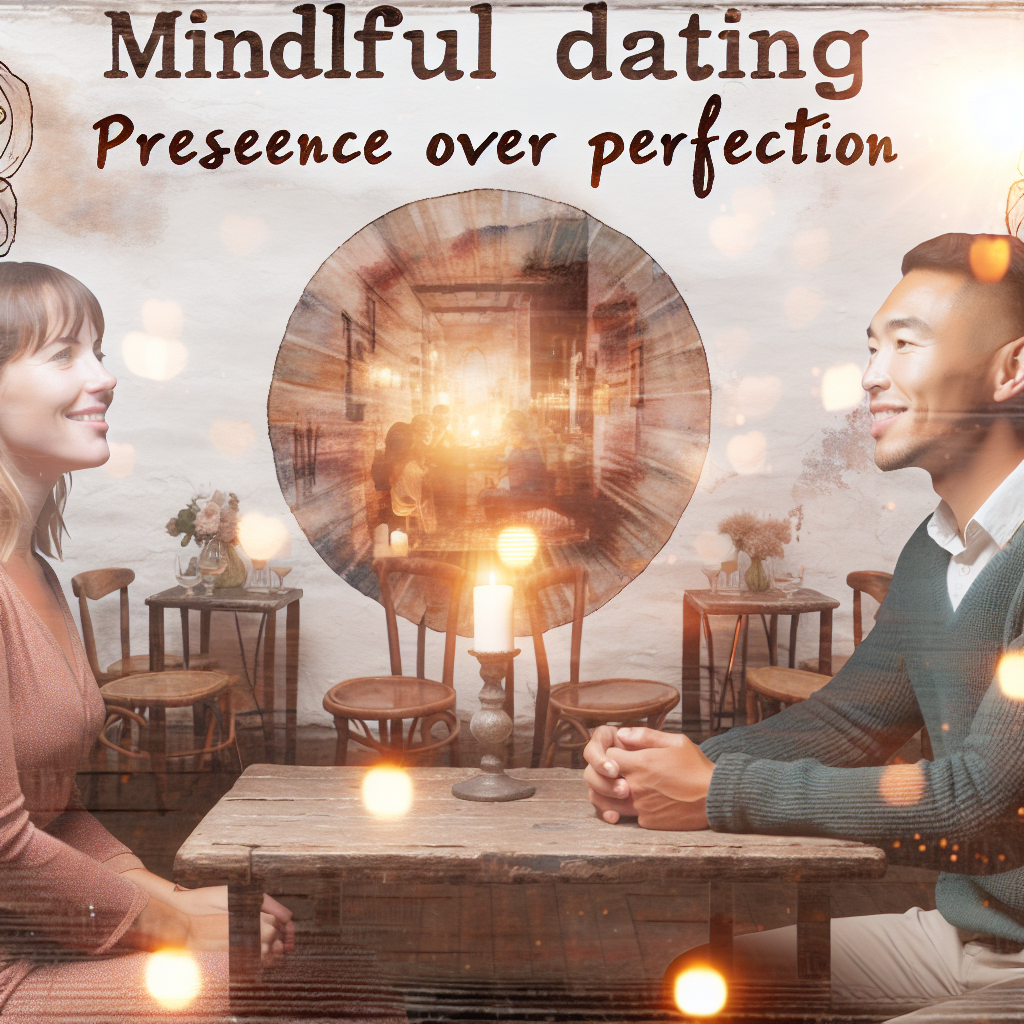Building Relationship Resilience: Strengthening Love Through Challenges
Introduction: The Power of Resilience in Love
In the vast and unpredictable world of dating and relationships, resilience is a key ingredient for success. Whether you’re navigating the early stages of dating, managing the complexities of a serious relationship, or recovering from heartbreak, the ability to adapt and thrive in the face of challenges is essential. Relationship resilience refers to the emotional, mental, and behavioral capacity to withstand difficulties and strengthen connections over time.
For singles and couples alike, the modern dating landscape presents unique challenges. Online dating has expanded access to potential partners, but it has also introduced ghosting, ambiguous commitments, and the pressure of curating the “perfect” image. Traditional dating still comes with its hurdles—miscommunication, unmet expectations, and external stressors can all put a strain on budding relationships. The reality is that every relationship, no matter how seemingly perfect, will face difficulties. The key difference between those that flourish and those that falter often lies in resilience.
Studies show that resilient relationships are marked by strong emotional regulation, effective communication, and the ability to manage conflicts constructively. Couples who can handle setbacks and disagreements while maintaining a deep emotional connection are more likely to experience long-term satisfaction. Fortunately, resilience is not simply an innate trait—it can be cultivated and strengthened over time. By developing healthy coping mechanisms, understanding emotional patterns, and fostering openness and flexibility, singles and couples can build stronger, more enduring relationships.
In this article, we’ll explore the psychology behind relationship resilience, delve into expert-backed strategies for fostering emotional strength, and provide practical insights to help singles from 18 to 80 navigate dating and relationships with confidence. Whether you’re seeking a new connection or nurturing an existing one, understanding and building resilience will equip you with the tools to create and maintain a lasting, fulfilling partnership.
The Science of Relationship Resilience: What Experts Say
Research in psychology and relationship dynamics strongly supports the idea that resilience is a powerful factor in relationship success.
A notable study by Dr. John Gottman, a leading marital expert and psychologist, highlights that couples who practice positive communication and manage stress effectively are more likely to stay together. In his research, Gottman introduced the concept of the “Four Horsemen of the Apocalypse”—criticism, contempt, defensiveness, and stonewalling—which are negative behaviors that erode relationship resilience. Couples who counteract these destructive tendencies with active listening, validation, and self-awareness can foster a more enduring bond [Gottman Institute, 2016].
Another pivotal study from the American Psychological Association (APA) found that individuals who practice emotional regulation in their personal lives experience better relational outcomes. Emotional intelligence—defined as the ability to recognize, understand, and manage emotions—plays a crucial role in building relationship resilience. According to psychologist Dr. Daniel Goleman, high emotional intelligence enables individuals to handle conflicts with empathy, maintain emotional stability, and foster deeper connections [Goleman, 1995].
A study published in the *Journal of Family Psychology* examined the impact of stress and external factors on romantic resilience. The findings revealed that couples who develop strong problem-solving skills and cultivate a supportive environment are more likely to overcome hardships together. Relationship researcher Dr. Eli Finkel attributes this to “adaptive dyadic coping,” where partners view challenges as a team effort rather than an individual burden [Finkel et al., 2017].
From a medical perspective, stress resilience is also linked to physiological health. Chronic relationship stress can trigger cortisol production, leading to anxiety and emotional distancing. However, engaging in activities that promote relaxation—such as mindfulness, self-care, and deep emotional conversations—can counteract these negative effects and promote a more resilient partnership [Harvard Health, 2020].
By integrating these findings into romantic connections, singles and couples can develop a relationship mindset that prioritizes adaptability, empathy, and perseverance. Learning to navigate difficulties with resilience not only strengthens emotional bonds but also improves mental and emotional well-being for both partners.
Practical Strategies for Building a Resilient Relationship
1. Cultivate Emotional Intelligence
Understanding and regulating emotions are vital skills for relationship resilience. Partners who can recognize their own feelings, as well as the emotions of their significant others, are more likely to communicate effectively and resolve conflicts in a healthy way.
💡 **Try This:** Practice active listening, reflect on emotional triggers, and express feelings with “I” statements to promote a deeper emotional connection.
2. Strengthen Communication Skills
Clear, honest, and respectful communication is the foundation of any strong relationship. Couples who engage in constructive discussions rather than argumentative debates tend to navigate difficulties more successfully.
💡 **Try This:** Schedule regular check-ins with your partner to discuss emotions, concerns, and relationship goals in a non-confrontational setting.
3. Develop Conflict Resolution Techniques
Disagreements are natural in any relationship, but how couples handle conflicts determines whether they grow stronger or drift apart. Approaching conflicts as opportunities for growth instead of battles to win fosters relationship resilience.
💡 **Try This:** Use “soft startups” when addressing conflict—avoid blame and instead express what you need in a calm and respectful manner.
4. Prioritize Self-Care and Individual Growth
A resilient relationship starts with individuals who prioritize personal well-being. When both partners nurture their personal growth, they bring a healthier, more balanced presence into the relationship.
💡 **Try This:** Encourage each other to pursue hobbies, engage in self-care, and maintain friendships outside the relationship. A strong sense of self bolsters resilience.
5. Create a Supportive and Positive Environment
Surrounding yourself with a positive emotional atmosphere helps reinforce resilience. Couples who uplift and support each other are better equipped to withstand stress and external pressures.
💡 **Try This:** Express appreciation often—leave a thoughtful note, offer praise, or simply say, “I appreciate you.” Acts of kindness reinforce a strong emotional connection.
Conclusion: Building Lasting Love Through Resilience
Building relationship resilience requires intentional effort, emotional intelligence, and a willingness to grow as an individual and as a partner. Despite the challenges of modern dating—whether it’s navigating online matches or handling real-world conflicts—the ability to endure and adapt is what sets successful relationships apart. By embracing effective communication, fostering emotional regulation, and applying strategies from psychological and medical research, singles and couples alike can create deeper, more fulfilling connections.
Resilience in love is not about avoiding difficulties, but about facing challenges with strength, understanding, and a commitment to long-term happiness. Strengthen your emotional foundation, cultivate a growth mindset, and watch your relationship thrive against life’s inevitable ups and downs.
**Summary:**
Building relationship resilience is crucial for navigating the challenges of modern dating and maintaining lasting, fulfilling partnerships. By cultivating emotional intelligence, strengthening communication skills, developing effective conflict resolution techniques, prioritizing self-care, and creating a supportive environment, individuals and couples can foster resilience and create stronger, more enduring connections.
**References:**
– [Gottman Institute (2016). “The Four Horsemen: Criticism, Contempt, Defensiveness, and Stonewalling.” Gottman Institute.](https://www.gottman.com)
– [Goleman, D. (1995). “Emotional Intelligence: Why It Can Matter More Than IQ.”](https://www.danielgoleman.info)
– [Finkel, E.J., et al. (2017). “The Role of Dyadic Coping in Romantic Resilience.” Journal of Family Psychology.](https://www.apa.org/pubs/journals/fam)
– [Harvard Health (2020). “The Impact of Stress on Relationships: Can Emotional Resilience Help?”](https://www.health.harvard.edu)

Dominic E. is a passionate filmmaker navigating the exciting intersection of art and science. By day, he delves into the complexities of the human body as a full-time medical writer, meticulously translating intricate medical concepts into accessible and engaging narratives. By night, he explores the boundless realm of cinematic storytelling, crafting narratives that evoke emotion and challenge perspectives. Film Student and Full-time Medical Writer for ContentVendor.com




